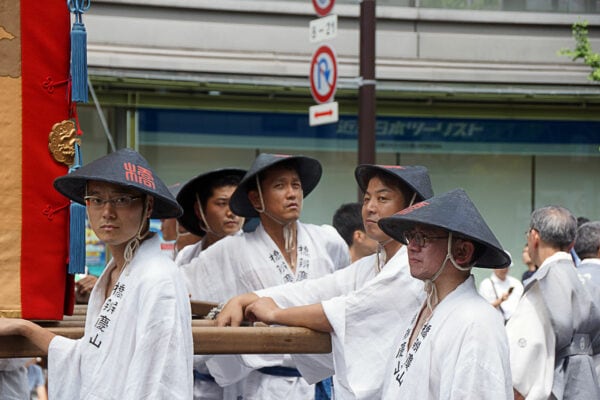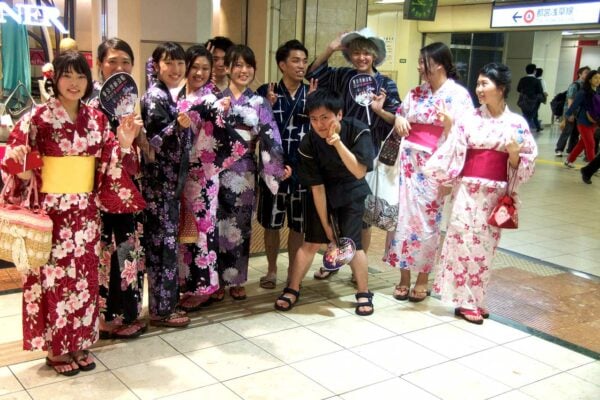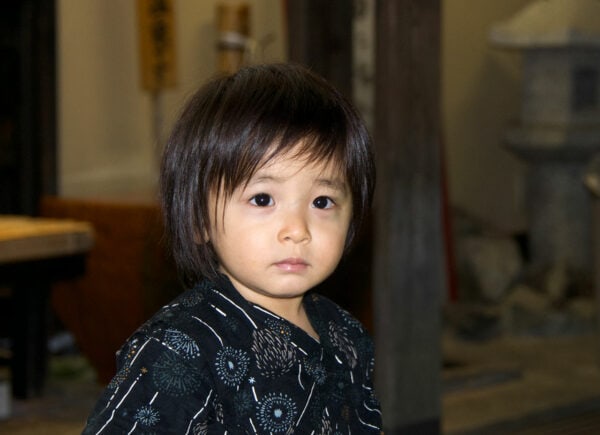In Japan, almost half of young men and women are virgins (Japan Times, Sept. 2016). Work and the government are to blame for the lack of a love life. Given that the Japanese population is aging at the fastest rate in the world, this is not good news for future generations. However, the government is not remaining idle and is pursuing ambitious plans with the “Super Smart Society” project. The question is, does this improve love life in Japan?
Unattractive Love Life
“The government must do more.” So says Aoyama, a former Japanese dominatrix who now offers her services as a sex and relationship counselor. 45% of Japanese women between 16 and 24 are not interested in sexual contact. Over a quarter of all men have similar attitudes. These figures were reported in an article by the Japan Times (Sept. 2017). It goes like this: 61% of unmarried men and 49% of women between the ages of 18 and 34 have never had a romantic relationship. This represents an increase of almost 10% in the last 5 years. Marriage has become an unattractive minefield in Japan. Japanese men have become less career-driven and less solvent.
 And yet conservative attitudes persist at home and at work. Japanese companies, for their part, make it almost impossible for women to combine career and family.
And yet conservative attitudes persist at home and at work. Japanese companies, for their part, make it almost impossible for women to combine career and family.
What men and women say about it
A fulfilling love life also means children. But children are unaffordable. Tomita sometimes has one-night stands with men she meets in bars. She says sex is not a priority for me. “I am often asked by married men in the office who want to have an affair with me. They assume I’m in despair because I’m single.” Then she grimaces and shrugs her shoulders.
“It’s too annoying,” says Kishino when asked why he isn’t interested in a girlfriend. “I don’t make a huge salary and I don’t want to date because women might think I’m interested in getting married.” Japanese media call men like Kishino “herbivores” or soshoku danshi (literally “grass-eating men”). Alluding to the animal world, herbivores are passive while carnivores are active (Wikipedia). Is Aoyama right and should the government adopt family and child-friendly policies? Probably yes. Nowhere else in the world is society aging as quickly as in Japan. Here, however, the topics of sex and family are closely linked. Celibacy automatically means childlessness and often a life without sex. There are still dating platforms like JapanCupid.com that, according to their own advertising, are successful.
Traditional marriage is losing its importance
“But in Japan the clocks still tick differently today. Here, turning away from marriage or having an unfulfilled love life means that these people do not have children. Cohabiting couples are very rare.” This is what an article in the Frankfurter Allgemeine from November 29, 2011 says. Japanese marriage beds are also extremely cheerless. A Ministry of Health study earlier this year found that 40.8 percent of married couples surveyed said they had not had sex in the last month. When asked why, men answered that they were simply too tired after long hours of work. Paradoxically, in the Japanese subway you can see many men in their prime flipping through pornographic comics unabashedly. Is the love life of Japanese men limited to fantasies?
The challenge of Japanese culture
In her study of gender inequality in Japan and Taiwan, Wei-Hin Yu found that progress toward equality is slower in Japan than in Taiwan, despite the proximity of their respective cultures. “The education systems of Japan and Taiwan both emphasize early success, which is why family support is generally crucial. However, both family norms stipulate that it is better to invest in the education of sons than in that of daughters.  But while Japan’s system does nothing to compensate for family norms that hinder girls’ educational ambitions, several of Taiwan’s institutional arrangements and selection mechanisms at various educational levels help increase women’s opportunities. For example, with access to four-year courses, especially in renowned universities” ( Yu, 2009). The United Nations Gender Inequality Index (GII) shows Japan moving from a score of 0.156 in 1995 to 0.103 in 2017. Compared to Singapore, for example, which fell from 0.250 to 0.067 over the same period, Japan’s progress is rather slow. Society 5.0 therefore pursues ambitious goals with regard to achieving gender equality.
But while Japan’s system does nothing to compensate for family norms that hinder girls’ educational ambitions, several of Taiwan’s institutional arrangements and selection mechanisms at various educational levels help increase women’s opportunities. For example, with access to four-year courses, especially in renowned universities” ( Yu, 2009). The United Nations Gender Inequality Index (GII) shows Japan moving from a score of 0.156 in 1995 to 0.103 in 2017. Compared to Singapore, for example, which fell from 0.250 to 0.067 over the same period, Japan’s progress is rather slow. Society 5.0 therefore pursues ambitious goals with regard to achieving gender equality.
The vision of a new society
As digitalization brings disruptive changes to the workplace and governments led by the United Nations aim to reduce gender inequality, exploring how these forces interact to influence the outcome of this endeavor can benefit everyone involved. At the international level, many countries have adopted a framework plan such as the German High-Tech Strategy 2020 (Industry 4.0), the national strategy Singapore Smart Nation or the 2030 eOman Digital Strategy.
What are the promises of a Super Smart Society?
The Japanese government is setting very ambitious goals in its 2030 “Society 5.0” and “Super Smart Society” initiatives as it strives for a new, people-centered society. “By promoting human resource development, the Japanese government aims to build a society in which all citizens, including young and elderly people, women and men, people with disabilities and people with intractable diseases, lead fulfilling lives and demonstrate their abilities can put. That is, a society in which all citizens are dynamically engaged” (Fukuyama, 2018, p. 49).
 Therefore: “According to this strategy, the key to achieving medium and long-term growth lies in the realization of a 5.0 society, which takes on various social challenges by leveraging the innovations of the 4th Industrial Revolution (e.g. big data, artificial intelligence, robotics, etc.) integrated into every industry and every area of society (Fukuyama, 2018, p.48). That sounds good, but how could technology improve the Japanese love life?
Therefore: “According to this strategy, the key to achieving medium and long-term growth lies in the realization of a 5.0 society, which takes on various social challenges by leveraging the innovations of the 4th Industrial Revolution (e.g. big data, artificial intelligence, robotics, etc.) integrated into every industry and every area of society (Fukuyama, 2018, p.48). That sounds good, but how could technology improve the Japanese love life?
Gender equality is key
Keidanren is the name of the Japanese business association.  Keidanren aims to address the problems of an “aging society and lack of active participation of women” and defines the future Society 5.0 as a society in which “every individual, including older people and women, can actively participate”. The percentage of women attending secondary school is higher than that of men. In 2004, the proportion of female university graduates (48.5%) was almost the same as that of men (51.1%). “However, the participation of women in the political decision-making process in Japan remains low, and the proportion of Women’s participation in the labor force declines during the first marriage and the childbearing/parenting period in the early 1930s. The opportunities for women to exploit their abilities and fully integrate into the society are unsifficient “ (Gender Equality Bureau, 2006).
Keidanren aims to address the problems of an “aging society and lack of active participation of women” and defines the future Society 5.0 as a society in which “every individual, including older people and women, can actively participate”. The percentage of women attending secondary school is higher than that of men. In 2004, the proportion of female university graduates (48.5%) was almost the same as that of men (51.1%). “However, the participation of women in the political decision-making process in Japan remains low, and the proportion of Women’s participation in the labor force declines during the first marriage and the childbearing/parenting period in the early 1930s. The opportunities for women to exploit their abilities and fully integrate into the society are unsifficient “ (Gender Equality Bureau, 2006).
Conclusion
 The fact that the Japanese love life is becoming less attractive poses enormous challenges for the Japanese society. Population aging is certainly the biggest of these in the long term. The Super Smart Society promises, among other things, to improve the lives of the elderly through technology. However, that doesn’t make the population younger. The core of the solution lies in increasing the birth rate. The younger generations should be interested in producing children again. To achieve this, it must become attractive again to enter into and build intimate relationships. But will equality between men and women or women’s access to higher professional positions promote or slow down the formation of families? This will depend, among other things, on a favorable social framework.
The fact that the Japanese love life is becoming less attractive poses enormous challenges for the Japanese society. Population aging is certainly the biggest of these in the long term. The Super Smart Society promises, among other things, to improve the lives of the elderly through technology. However, that doesn’t make the population younger. The core of the solution lies in increasing the birth rate. The younger generations should be interested in producing children again. To achieve this, it must become attractive again to enter into and build intimate relationships. But will equality between men and women or women’s access to higher professional positions promote or slow down the formation of families? This will depend, among other things, on a favorable social framework.
Author: Noureddine Yous, intermedio



